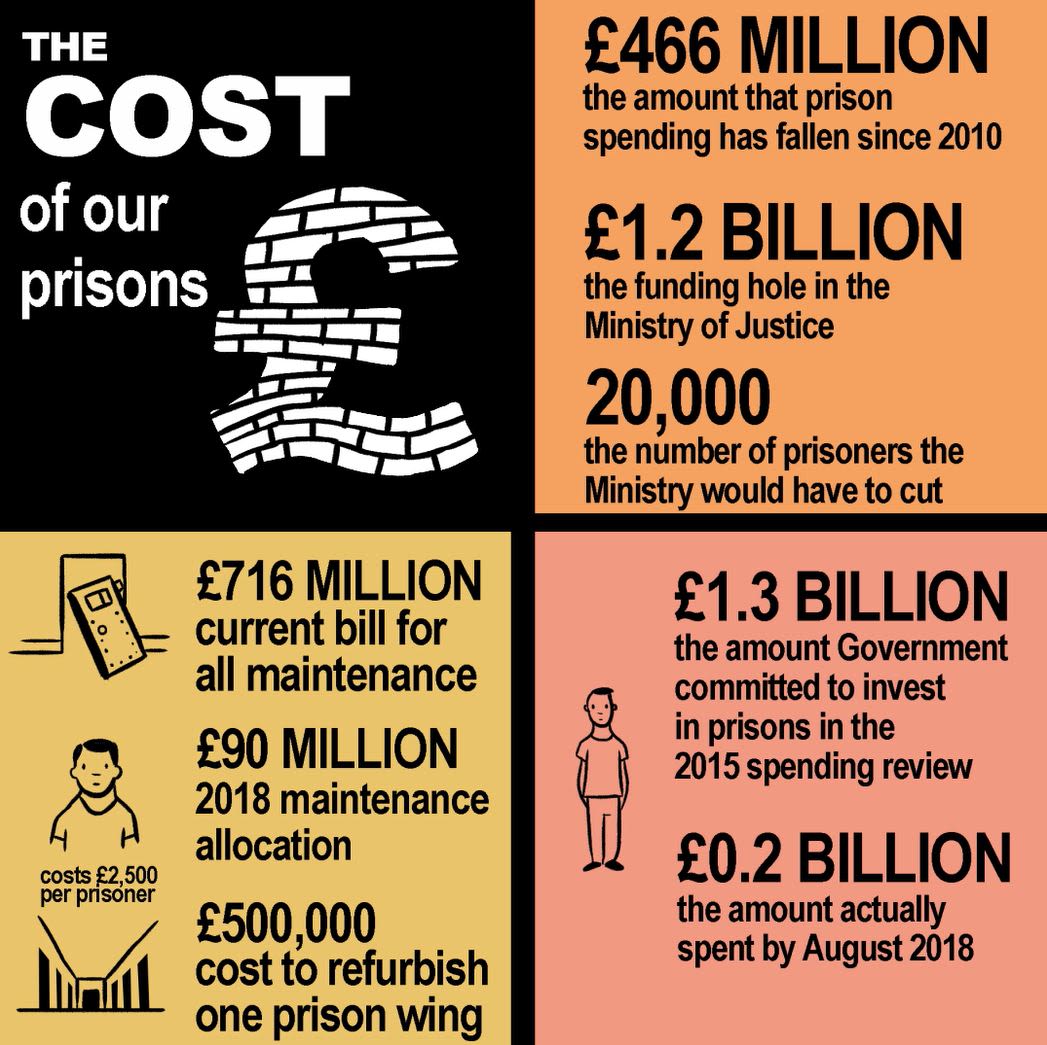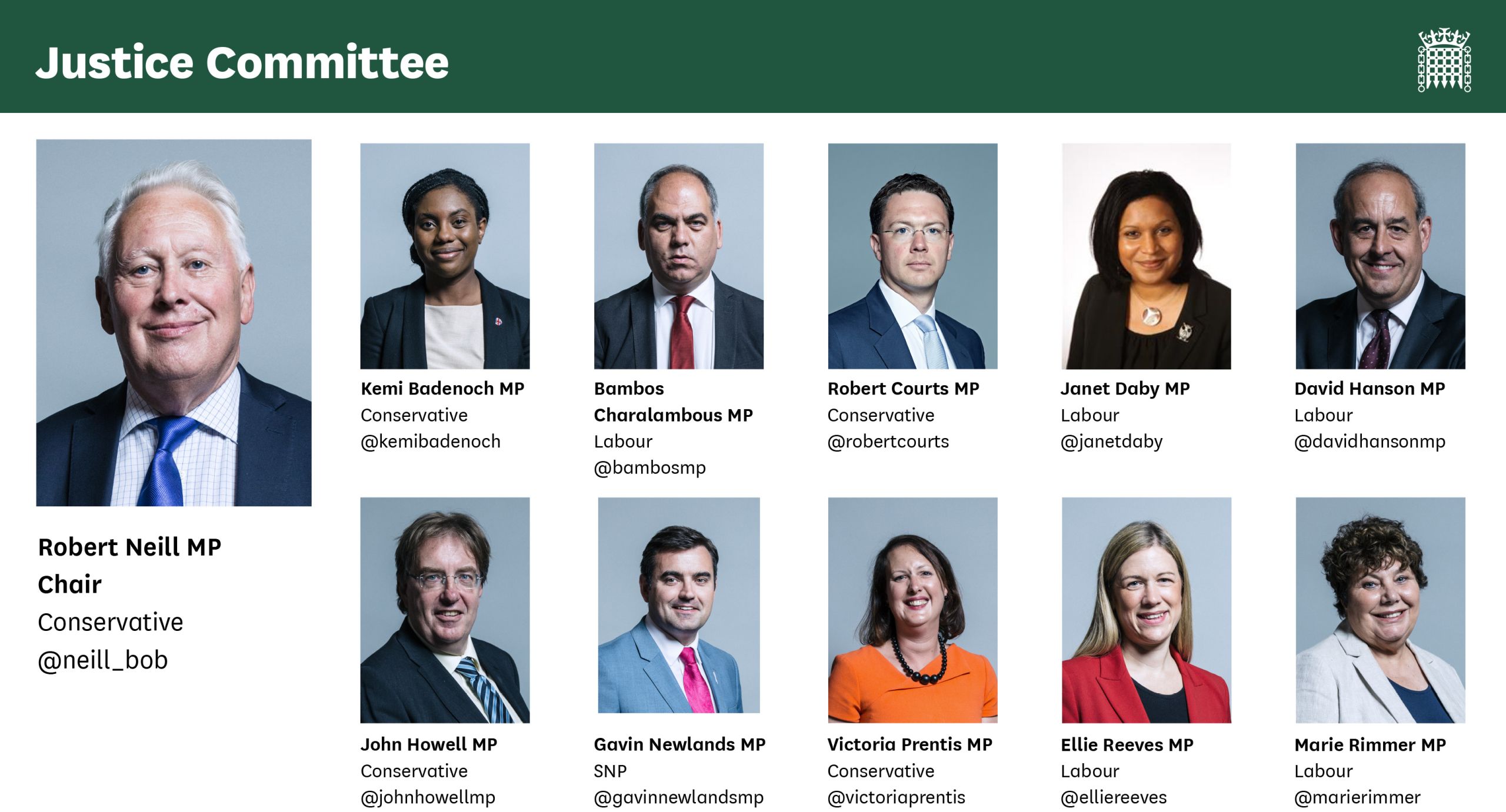Prisons sustainability crisis
Our current approach is neither efficient nor effective

Over the past 25 years, the prison population in England and Wales has grown significantly from 44,246 in 1993 to 82,384 as at December 2018.
Capacity has not kept pace with demand and many prisons are now overcrowded. Whilst the number of people in prison has remained roughly stable since 2012, the amount spent on prisons has fallen in recent years.
The Ministry of Justice currently has a gap in its finances across 2018–19 and 2019–20 which equates to £1.2 billion. This equates to a reduction in the prison population of roughly 20,000 prisoners.

Ploughing funding into building prisons to accommodate prison projections is not a sustainable approach in the medium or long-term. There must be a focus on investing in services to reduce the £15 billion annual cost of reoffending and prevent offenders from continually returning to prison, thereby reducing the size of the prison population.
The nature of the prison population is rapidly changing. A higher proportion of offenders are in prison for serious violent or sexual offences. The average age of the prison population is also rising. Many prisoners have mental health problems, making it difficult for them to navigate the criminal justice system, and levels of literacy are often low. All these factors and others make managing the current cohort of prisoners extremely challenging.
We, the Justice Committee, have made a number of proposals to Government to reform the current prison system.
Here five of our key recommendations:

1. There should be an overarching strategy for reducing reoffending and a clear vision for what prisons will look like in the future.
The Government’s existing approach to prison reform is not sufficient to resolve major structural deficits in provision to reduce crime.
There is an urgent need for significant additional resources for cross-departmental provision to reduce reoffending. This would save the Ministry money in the long-term and would reduce the cost to society of reoffending in the long-term.

2. In addition to their welcome move towards avoiding the use of sentences under six months, the Government should model the effects of abolishing sentences of fewer than 12 months.
We support the Government’s approach to the abolition of short, ineffective prison sentences. We repeat our recommendation of our Transforming Rehabilitation report that the Government should introduce presumption against short custodial sentences

3. The Ministry needs to acknowledge the challenge it faces and demonstrate that it has a long-term strategy to deal with prisoners with complex health and social needs.
The prison population has become increasingly challenging in nature, with prisoners often having complex health and social needs. Many have learning disabilities or mental health conditions, such as psychosis, that make it difficult to cope with the criminal justice system and places an additional burden on the prison service to manage their needs.

4. The Ministry needs to develop a realistic, properly costed, long-term estate strategy that enables it to meet the needs of an ever-changing prison population.
Whilst progress made on the Prison Estates Transformation Programme is welcome, the new-for-old strategy is not working as intended.

5. Prisons are not currently maximising opportunities for rehabilitation. Regimes need to be reported upon in a meaningful way to enable monitoring of their operations, which are key to rehabilitation.
The Government’s focus on addressing safety and decency in prisons has come at the expense of rehabilitation. The Ministry of Justice needs to refocus its efforts to enable a dual approach to maintain both safety and decency, as well as improve rehabilitation.
We are now in the depths of an enduring crisis in prison safety and decency that has lasted five years and is taking significant additional investment to rectify, further diverting funds from essential rehabilitative initiatives that could stem or reverse the predicted growth.
We are giving these recommendations to the Government as the Justice Committee formed of MPs from different political parties.
The Government has two months to respond to our report. To read more depth and detail about our recommendations, read our report on Prison population 2022: planning for the future, or see more on our website.

